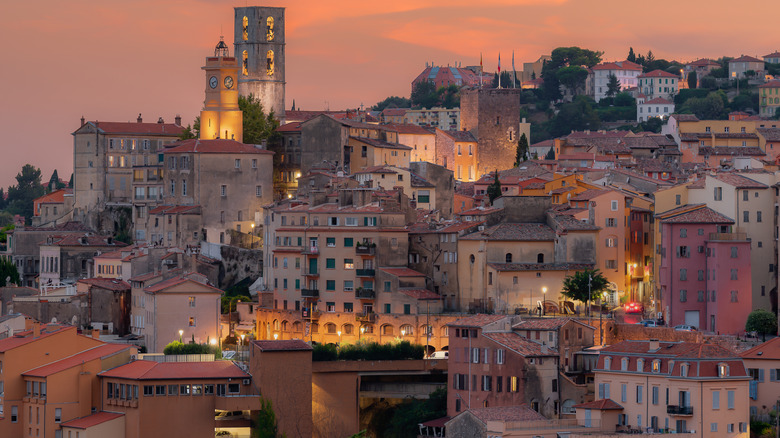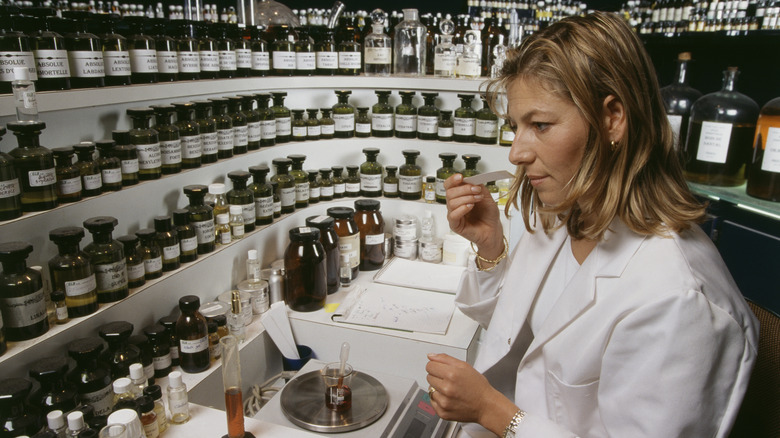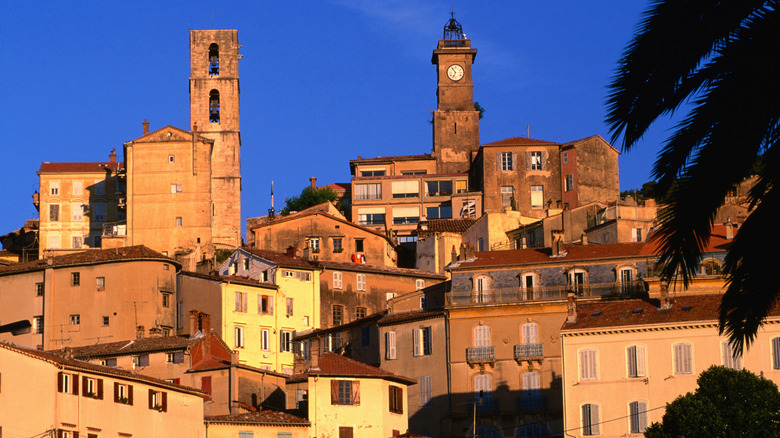The World's Perfume Capital Is A Sweet Smelling French Paradise With Serene Coastal Views
The French Riviera is commonly accepted as the most picturesque part of France, drawing the rich and famous to its shores, as well as being a holiday haven for the French. Saint Tropez is famed for the tanned physiques and yachts lining its beaches, and Nice, the region's capital, is renowned for its rich history and Belle Epoque architecture. Meanwhile, Cannes is known for its glitz and glamour. But just a little north of the star-studded Cannes is the lesser-known Grasse, the perfume capital of the world, an olfactory epicenter where some of the most popular fragrances on the planet have been born.
This coastal region between Cassis, France, and San Remo, Italy, was popularized by British aristocrats and earned the name Cote d'Azur in 1887 when writer Stephen Liégeard penned the term, referring to the azure blue color of the destination's Mediterranean waters. While tourism growth keeps some parts of the French Riviera extremely busy with millions of visitors a year, Grasse retains the essence of the Cote d'Azur whilst being on the quieter side. So close your eyes, and let your nose be your guide.
A scented history
Home to numerous perfume makers, Grasse takes visitors on a journey into the heart of the world's most beloved fragrances. The town is dotted with farmland and fields of flowers, with the scent of jasmine filling the air. Perhaps the world's most famous perfume, the iconic Chanel No. 5, was invented in 1921 by Ernest Beaux, who used Grasse's abundant jasmine fields to add the perfect notes to his scent.
Grasse is classically French, with patisseries and boulangeries lining the main road in town. It's charming but no more visibly remarkable than any other village in the south of France. What makes this town so special is its unique aromatic legacy. Because of this history, Grasse has earned its place in literature and the arts, with part of Patrick Süskind's cult novel "Perfume" set in 18th century Grasse. France's greatest voice, the unforgettable Edith Piaf, also died in the town, cementing Grasse's place in France's cultural pantheon.
The history of the town stretches back to the Middle Ages, when Grasse's main industry was tanning leather. This process produces a strong, unpleasant odor. To counter this, revolutionary perfumer Jean de Galimard had the clever idea of creating scented leather gloves. This trend caught on quickly amongst the elites, which led to leather tanners adapting quickly and developing new and exciting scents for their leathers. Gradually, as if through evolution, the leather part of the equation was lost, and the tanners became perfumers. Grasse's flowers became instrumental in this evolution, with roses, mimosas, lavender, and, most importantly, jasmine becoming important parts of the process.
An olfactory epicenter for exploring
Aside from hosting the perfumeries and factories of brands like Molinard and Galimard (both of which offer guided tours), Grasse also showcases the International Perfume Museum, where you can trace the origins of Grasse's sweet-smelling roots. The museum looks at how the French tradition of perfumery has evolved and houses artifacts such as decanters, filters, and other tools used in the manufacturing process. The collection also holds some of Marie Antoinette's relics and has a greenhouse full of Grasse's most fragrant plants, many of which provide the essence of popular perfumes.
If you'd prefer a more outdoors experience in Grasse but still want to learn about perfumery, the countryside offers a fantastic opportunity to understand the land and plants that have provided some of the world's most iconic scents. In the Pays de Grasse, you'll find approximately 99 acres of flower fields, with orange blossoms, irises, violets, and lilies (amongst others). You can also book a tour of Domaine de Manon, one of the region's most prominent flower farms. Jasmine season is from May to September. If you're looking to take home gifts (aside from the myriad of incredible perfumes on offer in the town), jasmine soaps, floral body sprays, and dried flowers are great souvenirs to keep the aromas of Grasse lingering well after your vacation has ended.


